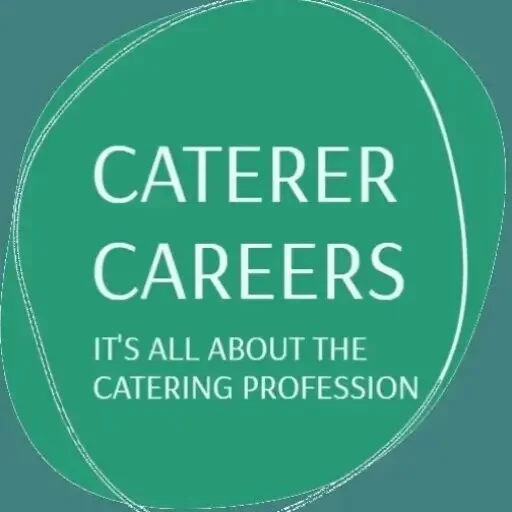
In the hospitality industry, effective communication skills are crucial to success. Whether you’re applying for a front desk position at a hospitality establishment, seeking a role as a restaurant manager, or interviewing for a job as an event coordinator, your ability to communicate clearly and professionally can make or break your chances.
Employers in the hospitality field prioritize candidates who can express themselves effectively, handle customer inquiries, and interact with diverse teams.
This article explores why communication skills are vital for a hospitality job seeker and how mastering this skill can elevate your career prospects.
1. Creating Positive First Impressions
In the hospitality industry, first impressions are everything. When you apply for a job, the first impression you make during your interview or through your application materials can influence an employer’s decision.
Strong communication skills allow you to present yourself confidently and clearly in both written and verbal formats.
During a job interview, your ability to articulate your experiences, qualifications, and passion for the role speaks volumes about your professionalism.
Employers value candidates who can maintain a conversation, answer questions succinctly, and engage in meaningful dialogue.
Effective communication demonstrates that you’re not only a fit for the position but that you will also be able to represent the company well to guests and clients.
2. Building Strong Relationships with Guests
One of the primary responsibilities of a hospitality professional is to ensure guest satisfaction. Whether you’re a concierge helping guests with their stay or a server taking food orders in a restaurant, communication plays a key role in delivering exceptional service.
Hospitality professionals must be adept at understanding customer needs, addressing concerns, and providing clear information.
Active listening, a critical aspect of communication, allows you to grasp what the guest is looking for, even when they may not fully express it.
The ability to communicate in a warm, approachable manner helps create a welcoming environment that enhances the guest experience, leading to positive reviews and repeat business.
In customer-facing roles, it’s also important to be able to communicate in stressful or high-pressure situations. For example, if a guest has a complaint or issue, your ability to communicate calmly and professionally can help defuse tension and resolve the matter efficiently.
3. Collaborating Effectively with Team Members
Hospitality is a team-oriented industry, and collaboration is essential to the smooth operation of any hotel, restaurant, or event.
As a job seeker, your ability to work well with colleagues and supervisors is a critical factor that hiring managers look for.
Good communication is the foundation of strong teamwork. Being able to convey information, ask for help when needed, and provide feedback to team members ensures that tasks are completed efficiently and that everyone is on the same page.
Miscommunication can lead to errors, delays, or even unhappy guests, so it’s essential that hospitality professionals can communicate effectively in fast-paced, high-stress environments.
Moreover, as you progress in your hospitality career, you may be required to take on leadership roles. Supervising staff, delegating tasks, and coordinating team efforts all require clear and assertive communication.
4. Understanding and Catering to a Diverse Clientele
The hospitality industry serves guests from all walks of life and often from various cultural and linguistic backgrounds.
Communication skills are especially important when interacting with a diverse clientele. Being able to adapt your communication style to accommodate different languages, accents, and cultural norms is a valuable asset.
In an increasingly globalized world, speaking multiple languages or even being aware of cultural differences can give you a significant advantage as a job seeker.
This flexibility not only improves the guest experience but also shows potential employers that you can thrive in an international or multicultural environment.
Additionally, non-verbal communication, such as body language and eye contact, plays a big role in hospitality.
Even when there are language barriers, hospitality professionals must use non-verbal cues to make guests feel comfortable and understood.
5. Issue-solving and Conflict Resolution
Every job in the hospitality industry comes with its fair share of challenges. From managing guest complaints to handling last-minute changes in event planning, hospitality professionals are frequently faced with situations that require quick thinking and problem-solving.
Strong communication skills are essential for navigating these challenges successfully.
When a problem arises, the ability to explain the issue clearly and propose potential solutions demonstrates professionalism and helps to build trust with both guests and team members.
Conflict resolution, in particular, relies on clear and empathetic communication. Hospitality employers highly value job seekers who can showcase their problem-solving abilities through effective communication.
For example, if a guest is unhappy with their room or meal, your ability to listen to their concerns and offer a thoughtful solution will leave a lasting positive impression.
Hospitality employers seek candidates who can remain calm under pressure and communicate solutions without escalating the situation.
6. Enhancing Career Growth and Opportunities
Communication skills are not just important for landing your first job in hospitality; they are critical to your long-term career growth.
As you gain experience, your ability to communicate effectively will open doors to higher-level positions, such as managerial or executive roles.
In leadership positions, you’ll need to communicate with staff, upper management, vendors, and clients regularly.
Clear communication ensures that operations run smoothly and that team members are motivated and informed.
Whether you’re presenting at a staff meeting, negotiating contracts, or handling guest relations, communication skills are indispensable.
Furthermore, networking, a vital aspect of career growth, relies heavily on communication. Building relationships with industry professionals, attending events, and engaging with colleagues all require a strong command of both verbal and written communication.
Conclusion
Communication skills are the backbone of success in the hospitality industry. From making great first impressions and building relationships with guests to solving problems and collaborating with teams, hospitality job seekers who master communication have a distinct advantage.
Whether you’re just starting out or looking to advance in your career, honing your communication skills will help you stand out to employers and thrive in the fast-paced, people-oriented world of hospitality.
Author
-

Benedict Ohia is a seasoned chef with over 15 years of experience in the culinary industry. Passionate about food, innovation, and mentoring others, Benedict combines his chef expertise with his storytelling talent as the founder of CatererCareers.com. Through his niche website, he provides invaluable insights, tips, and resources for aspiring chefs, caterers, and hospitality professionals. Whether guiding career growth or sharing industry trends, Benedict is dedicated to inspiring others to succeed in the dynamic world of catering and culinary arts.
View all posts
